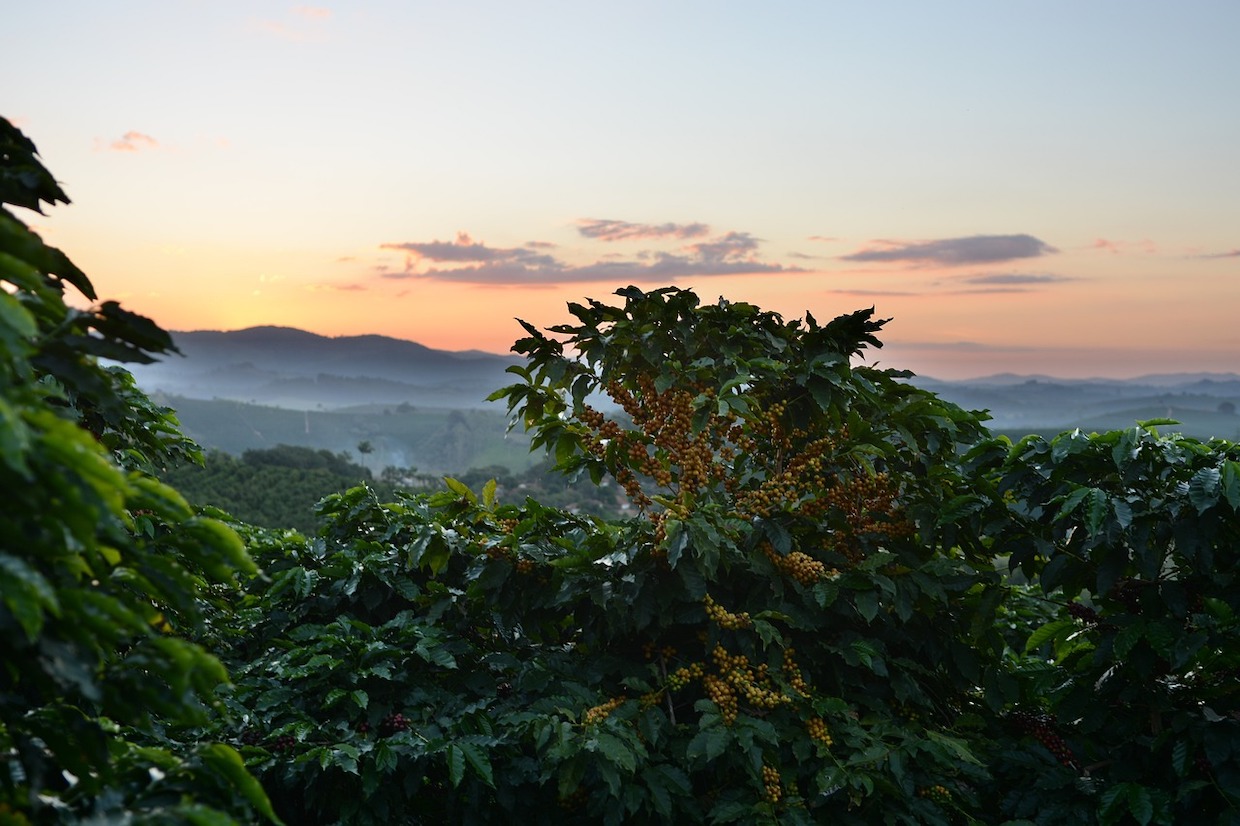
Coffee plants growing. New EU regulations may have sweeping implications for coffee producers, traders and roasters.
European legislators are working towards a landmark deal designed to cut down deforestation caused by products sold in or exported by the EU, notably including coffee.
If finalized as expected, the new regulations (known as EUDR) would have sweeping implications for the EU coffee industry as well as for upstream actors, such as producers and exporters.
The draft of the new regulations, which has been provisionally approved by the EU Council and Parliament, calls for deforestation risk benchmarking, mandatory checks based on risk level, new supply chain due diligence obligations for EU businesses, and financial penalties such as fines and loss of access to government funds.
“The EU is a large consumer and trader of commodities that play a substantial part in deforestation — like beef, cocoa, soy and timber,” Czech Minister of the Environment Marian Jurečka said in an EU announcement of the preliminary agreement. “The new rules aim to ensure that when consumers buy these products, they don’t contribute to further degrading forest ecosystems. Protecting the environment around the world, including forests and rainforests, is a common goal for all countries and the EU is ready to take its responsibility.”
Coffee, a well-known driver of tropical deforestation and forest degradation, is explicitly named among the handful of agricultural sectors that fall under the new rules.
Although the coffee roasting industry in places like the EU and United States has been slow or altogether unwilling to address its role in tropical deforestation, anecdotal evidence and academic research suggest increased global demand for coffee is resulting in rapidly increasing deforestation, as producers turn to full-sun monocrop production to maximize short-term crop productivity.
Inside the New EU Deforestation-Free Regulations
The full text of the proposed legislation can be found here, but below are some of the big takeaways…
Definition of “Deforestation”
The regulation calls for an agreed-upon definition of deforestation, based on the Food and Agriculture Organisation (FAO) definition. The rule also calls for an end to “forest degradation,” broadly defined as structural changes to forest cover involving the conversion of naturally regenerating or primary forests into plantations or planted forests.
Due-Diligence Obligations
The rule says EU operators will be required to trace the products they are selling “back to the plot of land where it was produced.” It also includes a provision for small operators to rely on larger operators to prepare due-diligence declarations.
Deforestation Risk Benchmarking
The rules call for a new benchmarking system that will be applied to producing countries. Countries will be assigned a risk level (low, standard or high) that will be used to determine the level of responsibility of EU country operators in carrying out inspections and controls.
Government Checks
The regulations call for authorities to carry out checks on EU operators to ensure they are fulfilling their obligations. The rules call for checks on 9% of operators trading products from “high risk” countries, on 3% of operators with products originating from “standard risk” countries and on 1% of operators with goods from “low risk” countries. Within that framework, authorities will check 9% of the quantity of each relevant product.
Human Rights
The agreement takes into account human rights aspects linked to deforestation, including the right to free, prior and informed consent by indigenous peoples.
Penalties
The proposal calls for “fines proportionate to the environmental damage and the value of the relevant commodities or products concerned.” It says penalties should be set at at least 4% of a given operators’ annual turnover in the EU and include a temporary exclusion from public funding and government contracts.
“The main driver of global deforestation and forest degradation is the expansion of agricultural land, which is linked to the production of the commodities included in the scope of the regulation,” the European Council stated. “As the EU is a major consumer of such commodities, it can reduce its impact on global deforestation and forest degradation by making sure these products and related supply chains are ‘deforestation-free.’”
Does your coffee business have news to share? Let DCN’s editors know here.
Nick Brown
Nick Brown is the editor of Daily Coffee News by Roast Magazine.
Comment
1 Comment
Comments are closed.






Well why aren’t they busy buying our coffee ! While Brazil has deforested its coffee growing regions for mass production. Here in Perú we sit struggling to produce a few pounds for next to nothing in profit. Who’s fooling who ?